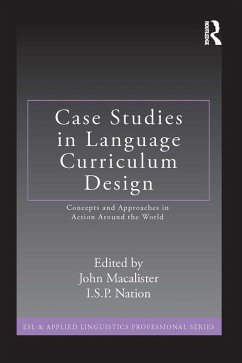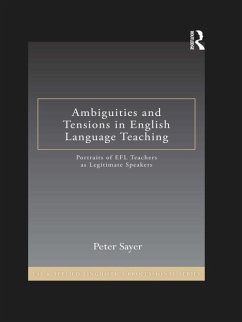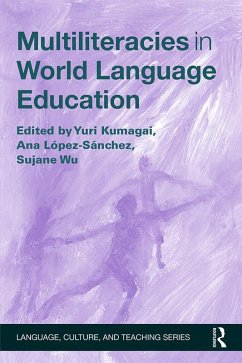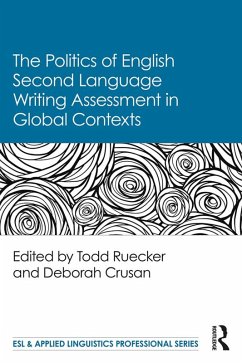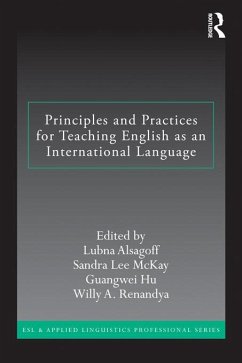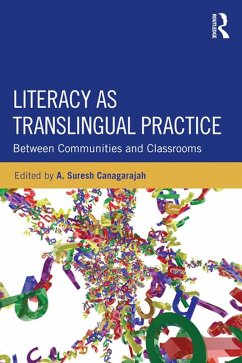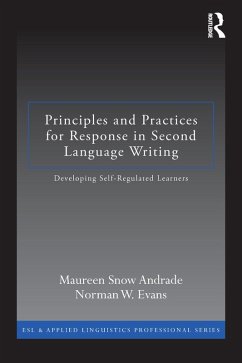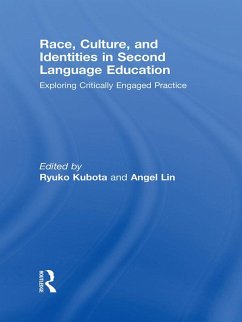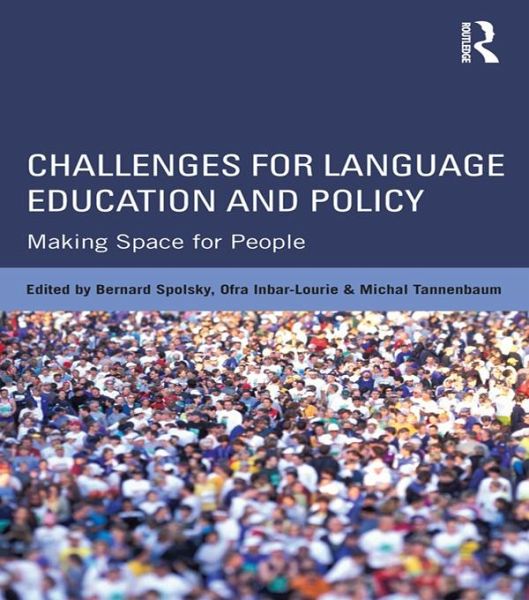
Challenges for Language Education and Policy (eBook, PDF)
Making Space for People
Redaktion: Spolsky, Bernard; Tannenbaum, Michal; Inbar-Lourie, Ofra
Versandkostenfrei!
Sofort per Download lieferbar
53,95 €
inkl. MwSt.
Weitere Ausgaben:

PAYBACK Punkte
27 °P sammeln!
Addressing a wide range of issues in applied linguistics, sociolinguistics, and multilingualism, this volume focuses on language users, the 'people.' Making creative connections between existing scholarship in language policy and contemporary theory and research in other social sciences, authors from around the world offer new critical perspectives for analyzing language phenomena and language theories, suggesting new meeting points among language users and language policy makers, norms, and traditions in diverse cultural, geographical, and historical contexts.Identifying and expanding on prev...
Addressing a wide range of issues in applied linguistics, sociolinguistics, and multilingualism, this volume focuses on language users, the 'people.' Making creative connections between existing scholarship in language policy and contemporary theory and research in other social sciences, authors from around the world offer new critical perspectives for analyzing language phenomena and language theories, suggesting new meeting points among language users and language policy makers, norms, and traditions in diverse cultural, geographical, and historical contexts.
Identifying and expanding on previously neglected aspects of language studies, the book is inspired by the work of Elana Shohamy, whose critical view and innovative work on a broad spectrum of key topics in applied linguistics has influenced many scholars in the field to think "out of the box" and to reconsider some basic commonly held understandings, specifically with regard to the impact of language and languaging on individual language users rather than on the masses.
Identifying and expanding on previously neglected aspects of language studies, the book is inspired by the work of Elana Shohamy, whose critical view and innovative work on a broad spectrum of key topics in applied linguistics has influenced many scholars in the field to think "out of the box" and to reconsider some basic commonly held understandings, specifically with regard to the impact of language and languaging on individual language users rather than on the masses.
Dieser Download kann aus rechtlichen Gründen nur mit Rechnungsadresse in A, B, BG, CY, CZ, D, DK, EW, E, FIN, F, GR, HR, H, IRL, I, LT, L, LR, M, NL, PL, P, R, S, SLO, SK ausgeliefert werden.




